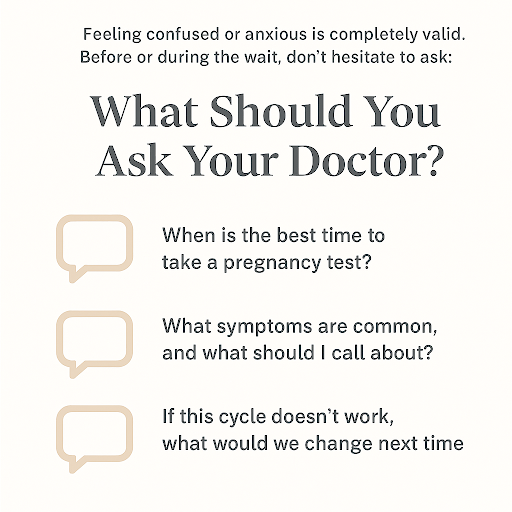Implantation 101: What Really Happens After the Embryo Transfer
The embryo transfer is done. You've taken all the meds, followed every instruction—and now, you wait.
Welcome to the infamous two-week wait—one of the most emotionally challenging and Googled parts of the IVF process.
But while you’re waiting, something incredible (and invisible) could be unfolding in your body. This blog breaks down the implantation timeline and helps you stay grounded in facts—not fear.
What Actually Happens After an Embryo Transfer?
If you're transferring a Day 5 blastocyst, here’s a general timeline of what may be happening inside your body:
Day 1: The embryo begins to hatch out of its shell.
Day 2–3: It starts attaching to the uterine lining.
Day 4–5: Full implantation occurs, and early cells start forming the placenta.
Day 6–9: hCG (the pregnancy hormone) begins to rise. This is what pregnancy tests detect.
Keep in mind: implantation doesn’t happen immediately. And everyone’s body works on its own schedule.
🚩 Common Symptoms vs. Misleading Signs
We get it—the temptation to symptom spot is so real. But many “signs” of implantation are also just side effects of progesterone or stress.
You might experience:
- Light spotting or cramping (normal)
- Tender breasts, fatigue, mood swings (also normal... or just hormones)
- No symptoms at all (still completely normal!)
Important: Not feeling anything doesn’t mean it didn’t work.
Why Every Patient’s Experience Is Different
Some people report feeling changes right away. Others feel nothing until they get their test result—and some never feel “pregnant” at all.
Factors like embryo quality, uterine lining thickness, immune response, and stress levels all play a role.
This is why it’s so important to stay away from comparison (especially online). Your journey is your own.
How to Support Yourself During the Wait
Instead of obsessively Googling symptoms, try things that nurture your mind and body:
- Gentle walks or light stretching
- Fertility meditations (we love the Mindful IVF app)
- Hydration + balanced meals
- Journaling your emotions without judgment
- Avoid testing early if it creates more anxiety than relief
Your job right now is not to analyze—it’s to support yourself with care and calm.
What Should You Ask Your Doctor?
Feeling confused or anxious is completely valid. Before or during the wait, don’t hesitate to ask:

This kind of proactive, informed communication can help you feel more in control of a process that often feels anything but.
You Don’t Have to Wait in the Dark
Whether this is your first transfer or your fifth, Aspire Fertility is here to walk beside you with compassion, clarity, and personalized care.
From advanced diagnostics to emotional support, we’re here for every part of your journey—including the in-between.
👉 Connect with Aspire Fertility to get the guidance and reassurance you deserve.
Because this chapter may feel quiet—but it holds so much hope.


















